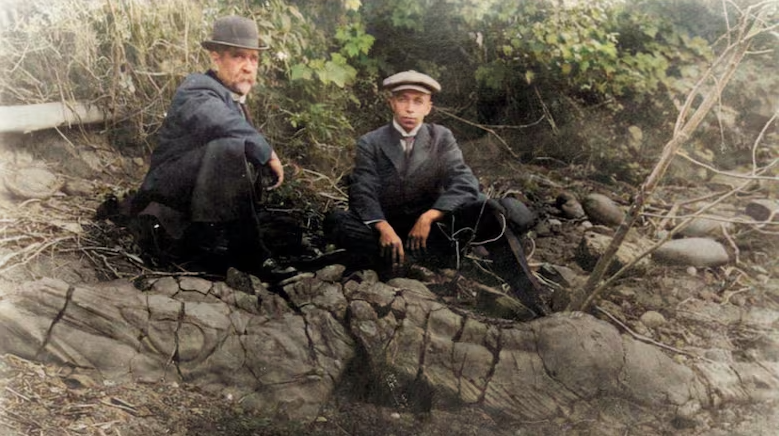New Marine Reptile Species Identified from Century-Old Fossil Found in Fernie, B.C.
Sarah Desjardins
8/4/20252 min read


A fossil unearthed more than a century ago near Fernie, B.C., has been officially identified as a new species of marine reptile, shedding light on a prehistoric predator that swam Earth’s oceans around 190 million years ago.
Named Fernatator Prenticei, the ichthyosaur was first discovered in 1916 by local fisherman Tom Prentice, who spotted the fossil embedded in rock while fishing along the Elk River. Located roughly 12 kilometres south of Fernie — about 940 kilometres east of Vancouver — the fossil was extracted with help from a coal company and later donated to the Geological Survey of Canada, now part of the Canadian Museum of Nature in Ottawa.
There, it remained in storage for decades until paleontologist Jordan Mallon took an interest. “It had been sitting on the shelves for years,” Mallon told CBC’s Daybreak South. “It piqued my curiosity when I saw it.”
Working with ichthyosaur expert Judy Massare from the State University of New York Brockport, Mallon began examining the fossil in detail. While it initially resembled known European ichthyosaurs, closer analysis revealed distinct differences in skull structure and overall size.
“The closer we looked, the more discrepancies we found,” Mallon said. These subtle differences led to the identification of a completely new species.
The genus name Fernatator means “Fernie swimmer,” a nod to both the town and the Fernie Formation — the geological layer from which the fossil was pulled. The species name, Prenticei, honours Tom Prentice, the man who made the original discovery.
This ichthyosaur would have lived during the Early Jurassic period, long before dinosaurs went extinct. Resembling a dolphin in shape, it was a swift marine predator, and its skeleton is now recognized as the most complete ichthyosaur fossil ever found in North America.
Mallon emphasized the importance of the discovery: “We’ve seen ichthyosaur remains in B.C. before, but usually just isolated bones — a flipper here, a vertebra there. This is different. This fossil gives us a much clearer picture of the animal.”
For paleontologists, the find is a rare reminder that even century-old discoveries can still unlock new chapters in Earth’s history — as long as someone is willing to take a closer look.
News
Stay updated with the latest BC news stories, subscribe to our newsletter today.
SUBSCRIBE
© 2025 Innovatory Labs Inc.. All rights reserved.
LINKS
